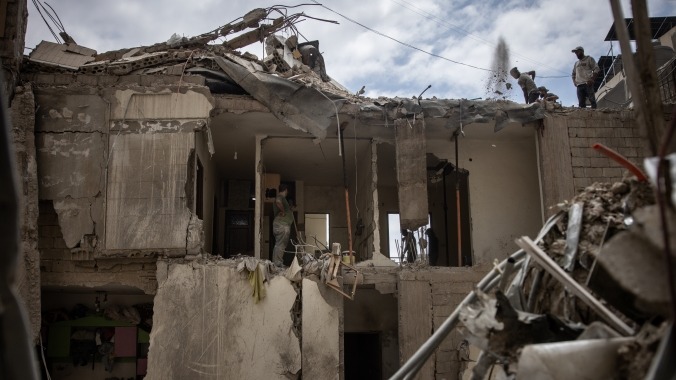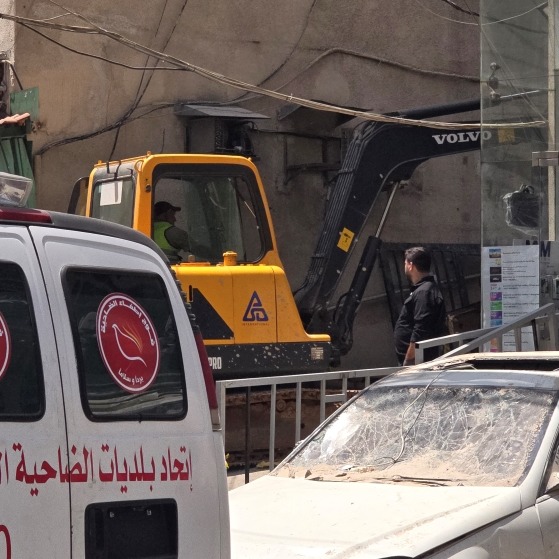Israel’s Bombing of Lebanon Risks Sparking a Larger Regional War
Photo by Chris McGrath/Getty Images
On the evening of July 30th, the residential neighborhood of Haret Hreik, inside the southern suburb of Beirut, was rocked by an Israeli drone strike. The attack, which resulted in the assassination of Hezb’Allah Senior Commander Sayyed Fouad Ali Shokr, also killed three women and two children, Hassan and Amira Fadlallah, who were reportedly found clutching one another amidst the rubble. The raid was strong enough to be felt in surrounding neighborhoods in the suburb, shaking buildings and disrupting a sense of calm felt in Beirut’s bustling Dahye.

Photo of the site of the attack by Roqayah Chamseddine
That night, smoke still billowing and first responders still tending to the scene, crowds formed outside in defiance, with shouts of “Labayk ya Hussain!” — “We are at your service, Oh Hussain!” — and slogans held in solidarity with Palestine. The following day, members of the Lebanese Army filled the area as emergency services continued sifting through the rubble in hopes of finding those unaccounted for—a local security official told Splinter “we have to keep looking, until we know that everyone is found.”

Photo by Roqayah Chamseddine
Despite the violent attack there was a sense of relative normalcy in Haret Hreik the next day, with crowds still gathered to observe the destroyed building. A resting medical responder who had been at the site for two days commented that life had mostly returned to normal. “Because we put all our trust in God, and that is sufficient enough,” the responder said. “We aren’t shaken. We mourn but keep going, because we must.”
Clutching a suitcase and carrying his daughter on his shoulder, Muhammad, a waiter at a local restaurant in the area, said that while he had no fear about possible Israeli raids, he was moving his family out of the area. “Another raid is likely, so I am moving my wife and children from the suburb for the time being. No one is fleeing the Dahye—and I insist this is made clear, that no one is running away—but I have to keep the safety of my family in mind, and I will do whatever it takes to keep them safe.”
-

-

-

-

-

-

-

-

-

-

-

-

-

-

-

-

-

-

-

-

-

-

-

-

-

-

-

-

-

-

-

-

-

-

-

-

-

-

-

-

-

-

-

-

-

-

-

-

-

-

-

-

-

-

-

-

-

-

-

-

-

-

-

-

-

-

-

-

-

-

-

-

-

-

-

-

-

-

-

-

-

-

-

-

-

-

-

-

-

-

-

-

-

-

-

-

-

-

-

-

-

-

-

-

-

-

-

-













































































































